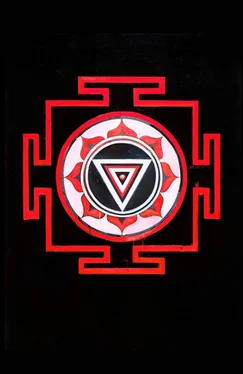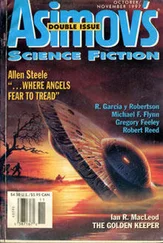Ignoring my instincts, I tried to placate Ishtiaq. The momentary weakness ignited impudence, and he shouted all the harder. Diners at other tables began to stare at us, and it wasn’t a big place.
Speaking quickly, I soothed Ishtiaq, pulled some money from my pocket and paid him off. He snatched at the notes, snarled at Deepak, and left the bar. Deepak gave me an apologetic shrug, and slipped out onto the street.
I slid the metal bracelet of the watch over my hand, onto my wrist. I snapped the catch shut. It was a perfect fit. Then I looked up to see the manager and his waiters staring at me. The short story written in their eyes was clear: I’d lost face. Men in my position didn’t placate street touts like Ishtiaq.
I glanced again at the watch on my wrist. My greed had weakened me. Greed is human Kryptonite , Karla once said to me, as she pocketed all of the commission we’d just made together on a deal.
I needed to work out, and swung the bike through traffic, heading for the mafia boxing gym at Ballard Pier.
The manager of the gym, Hussein, was a veteran gangster who’d lost an arm to a machete blow in a battle with another gang. His long, scarred face found its way into a biblical beard that rested on the prodigious mound of his chest. He was brave, kind, funny, tough, and a match for any of the young gangsters who trained at the gym. Every time I looked into his laughing, dangerous eyes I wondered what he and Khaderbhai must’ve been like: the young fighters who created a gang that became a mafia Company.
Let my enemy see the tiger , they used to say, before he dies .
There was no doubt that Hussein and Khaderbhai had shown the tiger many times, as they’d prowled the city, young and fearless, all those years before. And something of that striped menace lingered in the burnt-clay eyes of the gym master.
‘ Wah, wah , Linbaba,’ he said, as I entered the gym. ‘ Salaam aleikum. ’
‘ Wa aleikum salaam , One Hussein.’
Because another Hussein joined Khaderbhai in those early years, and went on to hold a position on the Council, they were sometimes known as One Hussein and Two Hussein, for the number of arms they possessed.
‘ Kya hal hain? ’ How are you going?
‘Busier than a one-armed man in a bar fight,’ I replied in Hindi.
It was an old joke between us, but he laughed every time.
‘How are you, One Husseinbhai?’
‘Still swinging the punches, Linbaba. If you keep punching, you stay hard. If you stop the windmill, there’s no flour.’
‘You got that right.’
‘Are you training full session, Lin?’
‘No, One Husseinbhai, just loading the guns.’
Loading the guns was gangster slang for a workout that pumped the biceps and triceps in the same session of supersets.
‘Damn good!’ he laughed. ‘Keep the guns loaded, yaar. You know the two rules of combat. Make sure they know they’ve been hit, and -’
‘Make sure they stay hit,’ I finished for him.
‘ Jarur! ’
He handed me a towel as I walked past into the main training room. The gym, which at first had been a small, dirty space where large, dirty gangsters learned the arts of street fighting, had proven so popular with the young men of the Sanjay Company that it had been expanded to include the whole of the neighbouring warehouse.
In the foreground there was an assortment of weight-training equipment: benches, lat and rowing machines, incline and decline presses, squat bars, chin-up and dip bars, and stacks of heavy plates and dumbbells. Beyond that area, lined with mirrors, was the blood-stained boxing ring.
Further into the newly created space was a wrestling and judo mat. Lining the far wall were heavy body bags and suspended speedballs. In the corner leading back toward the entrance was a corridor, two men wide, formed with vinyl-padded walls. The corridor was the training space for knife fighting.
It was hot in the gym. Grunts, moans and shouts of pain pierced humid air that was sweating adrenaline and that high, scrape-bone smell of testosterone.
I’ve spent a large part of my life in the company of men. Ten years of my life in prisons, seven years in gangs, twenty years in gyms, karate schools, boxing clubs, rugby teams, motorcycle groups, and all my growing years in a boys’ school: more than half of my life in exclusively male societies. And I’ve always felt comfortable there. It’s a simple world. You only need one key to every locked heart: confidence.
Nodding to the other young men in the weight-training area, I took the long knife-scabbards from their tucks in the back of my jeans, and folded them with my money, keys, the watch and my shirt on a wide wooden stool.
Strapping on a thick leather weight belt, I slapped the towel on an empty bench, and began my alternate sets of reclining tricep extensions and standing bicep curls. After thirty minutes, my arms were at the peak of their pump. I collected my things, and made my way to the knife-training corridor.
In those years before every handbag thief carried a gun, the techniques of knife fighting were a serious business. The masters who taught their knife skills were cult heroes for young gangsters, and treated with as much deference as members of the Sanjay Council themselves.
Hathoda, the man who’d taught me for two years, had also taught Ishmeet, the leader of the Cycle Killers, who’d passed on the skills to his own men. The knife master was just leaving the corridor with a young street fighter named Tricky as I approached.
They both greeted me with smiles and warm handshakes. The young gangster, exhausted but happy, excused himself quickly, and headed for the shower.
‘A good kid,’ Hathoda said in Hindi, as we watched him leave. ‘And a natural with the knife, may he never use it in shame .’
The last phrase was a kind of incantation that Hathoda taught his students. I repeated it instinctively, as we all did, in the plural.
‘ May we never use it in shame. ’
Hathoda was a Sikh, from the holy city of Amritsar. As a young man, he’d fallen in with a tough crowd. Eventually, he’d abandoned his studies, and spent almost all of his time with the local gang. When a violent robbery led to conflict with community leaders, Hathoda’s family disowned him. As part of the price of peace, his gang had been compelled to cast him out as well.
Alone and penniless, he made his way to Bombay, and was recruited by Khaderbhai. He apprenticed the young Sikh to Ganeshbhai, the last of the master knife fighters, who’d started with Khaderbhai in the early 1960s.
Hathoda never left the master’s side, and through years of study became a master himself. He was, in fact, the last knife teacher in South Bombay, but none of us knew that then, in those years before the glamour of the gun.
He was a tall man, something of a disadvantage for a knife fighter, with a thick mane of oiled hair coiled into a permanent topknot. His almond-shaped eyes, the same Punjabi eyes that with a single, smouldering stare, had seduced travellers to India for centuries, glowed with fearlessness and honour.
His name, the one that everyone in South Bombay knew him by, Hathoda , meant Hammer in Hindi.
‘So, Lin, you want to practise with me? I was just leaving, but I’m happy to stay for another session, if your reflexes are up to it?’
‘I don’t want to put you out, master- ji ,’ I demurred.
‘It’s no trouble,’ he insisted. ‘I’ll just drink water, and we’ll begin.’
‘I’ll train with him,’ a voice from behind me said, speaking in Hindi. ‘The gora can work out with me.’
Читать дальше












